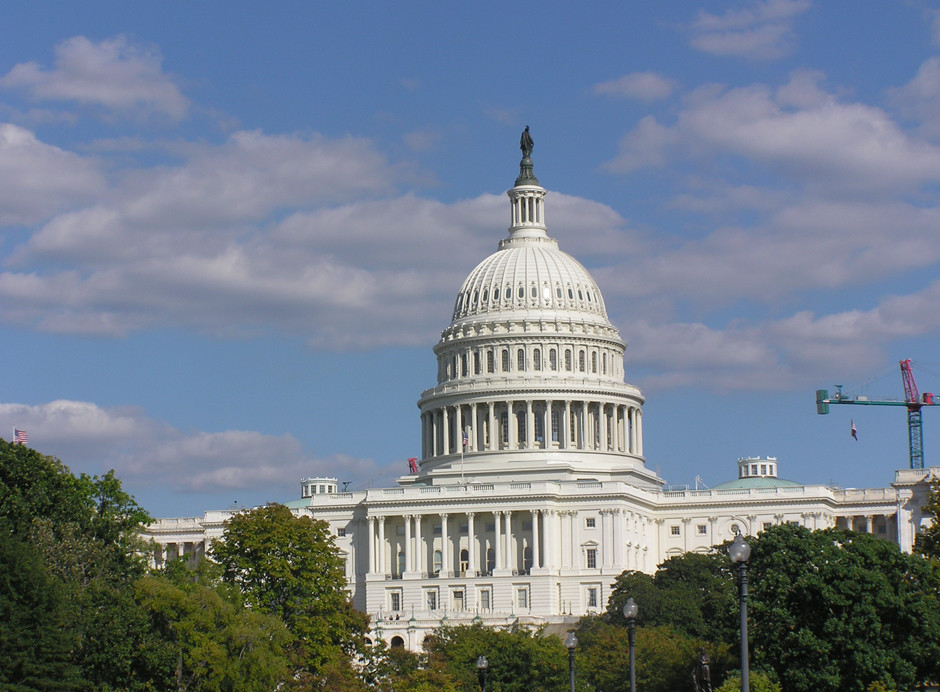Recently I brought up the difficult subject of pulling back the curtain on the food industry. The painful process of removing our blissful ignorance and replacing it with hard truths. Many of you responded with thanks and a desire to dig deeper. Since my knowledge on the subject only goes so far, I have brought in an expert to get us started. In his first monthly column with us, Andy Bellatti, MS, RD shares some thoughts on why we should care about food politics in the first place.
When most people think of the word “politics”, they equate it with many things: a deeply divided bipartisan system, long hearings aired on C-SPAN, a ‘taboo’ dinner table topic, the much-talked-about yet poorly-understood debt ceiling, and a complicated web of laws, bills, and bureaucracy. And while that certainly is one part of the political world, there is another side to politics; the side that affects us all on a daily basis, no matter how far you may live from Capitol Hill.
Enter food politics. To many, “food politics” is a new term. How can food be political? Carrots don’t endorse specific politicians, and no one buys different foods based on the political party they support. While that is true, our food system is entrenched in politics, and I hope to raise your awareness about that in this monthly column.
First, a brief history lesson. The term “food politics” has gone mainstream, and that is in large part thanks to New York University professor and renowned nutrition expert Dr. Marion Nestle, whose book on the topic – appropriately titled Food Politics: How the Food Industry Influences Nutrition and Health – marked the beginning of a new era in nutrition discourse. If the subject matter is slightly intimidating, then her latest book (Eat, Drink, Vote: An Illustrated Guide to Food Politics) is a great way to get your feet wet.
Why should you care about food politics? Simple – the more you understand the socio-political factors that affect our food system, the more informed you are. And, the more informed you are, the more involved you can be in shaping a better tomorrow.
Fair warning – food politics encompasses an array of topics, and it can be very easy, especially as a ‘newbie’, to get overwhelmed and think not only “where do I start?” but “we’re doomed!”. As you familiarize yourself with the concepts and challenges, keep in mind that we are at the beginning of a paradigm shift. We may live in a world of instant messaging and one-click purchases, but social change takes time, mainly because social change is an investment. The work we do today may not yield results right away, but it sets up a wonderful foundation for the next generation to continue our legacy.
Earlier, I mentioned that our food system is entrenched in politics; let me provide a few examples to get you thinking:
- The United States government subsidizes several crops, including corn (the most subsidized), soybeans, and wheat. Mind you, most subsidized corn is either used to make ethanol or cheap byproducts that are ubiquitous in processed foods: soybean oil and high fructose corn syrup. This is very convenient for the food industry, since they can make quite a profit selling nutritionally empty foods that cost next to nothing to make. Agricultural subsidies are highly political, and changing them could help improve our food system.
- Though the food pyramid has now been replaced with a plate, that doesn’t change the fact that federal nutrition advice has long been tainted by politics. Remember – a lot of federal programs (including the school lunch program) use this advice as their knowledge base.
- There are many people and organizations advocating for health, but the food industry’s deep pockets allow them to hire lobbyists to block public health policy and fight regulation at all costs. It’s why the limits on advertising to children that have been so successful in Scandinavian nations have not been implemented here. It’s also why candy companies use natural food dyes for their products in Europe but artificial ones on this side of the Atlantic.
In future columns, I’ll let you know of organizations that tackle food politics, politicians who have helped shape food politics successes, and how to determine when a policy effort is the real deal versus a front put up by the food industry to further carry out their agenda.
Until then, stay informed!
Andy Bellatti, MS, RD is a Las Vegas-based nutritionist with a plant-centric and whole-food focus. His work has been published in Grist, The Huffington Post, Today’s Dietitian, Food Safety News, and Civil Eats, among others. He is just as passionate about healthful eating as he is about food politics, deceptive Big Food marketing, and issues of sustainability, animal welfare, and social justice in our food system. He is the creator of the Small Bites blog (which, though now closed, has almost 2,000 archived posts). You can also follow Andy on Twitter and Facebook.
Do you care about food politics? Why or why not?


